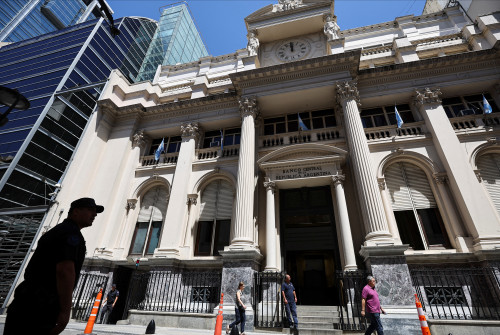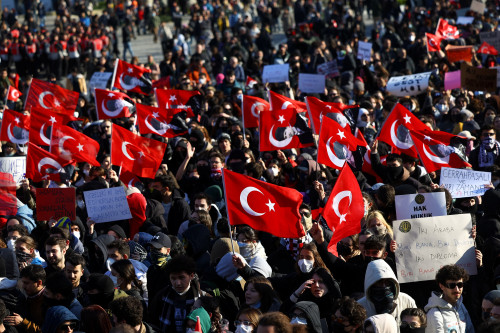BRASILIA (Reuters) -Brazilian central bank chief Roberto Campos Neto said on Thursday that a fiscal framework bill approved a day earlier by the country’s lower house has had a positive impact on inflation forecasts and long-term interest rates.
Brazil’s lower house passed the bill on Wednesday and sent it to the Senate, a major victory for the President Luiz Inacio Lula da Silva’s government as it seeks to balance public accounts while taming debt growth.
Speaking to television channel Globo News, Campos Neto did not say when the benchmark Selic interest rate could be cut, adding he is just “a vote of nine” on the monetary authority board.
He maintained that he expects to serve his full term until 2024, amid government criticisms of the bank’s monetary policy.
Under the new fiscal rules, government expenditures will not be allowed to rise by more than 70% of any increase in revenue, with spending growth also limited to between 0.6% and 2.5% per year above inflation.
Campos Neto had previously ruled out imminent cuts despite government pressure for rates to be lowered. The autonomous central bank has kept benchmark rates at a six-year high of 13.75% since September 2022.
The bid to tame high inflation has drawn criticism from Lula, who considers the high rates an obstacle to economic growth.
Campos Neto praised the work of the government and Finance Minister Fernando Haddad, as well as “how congress mobilized and voted quickly and so expressively on an issue such as the framework.”
Long-term interest rates are falling “a lot,” he said.
Inflation data published earlier on Thursday was “better than expected,” Campos Neto added, while core inflation came in “a little better” than forecast.
Deflation, he said, has been a little slower, though the bank was seeing positive signs.
The local IPCA-15 consumer price index was up 4.07% in the 12 months to mid-May, slowing from 4.16% in the previous month and hitting its lowest level since October 2020, according to national statistics agency IBGE.
Policymakers in Brazil have highlighted de-anchored inflation expectations as one of the reasons for high interest rates.
(Reporting by Bernardo Caram; Writing by Carolina Pulice; Editing by Sarah Morland and Alistair Bell)





